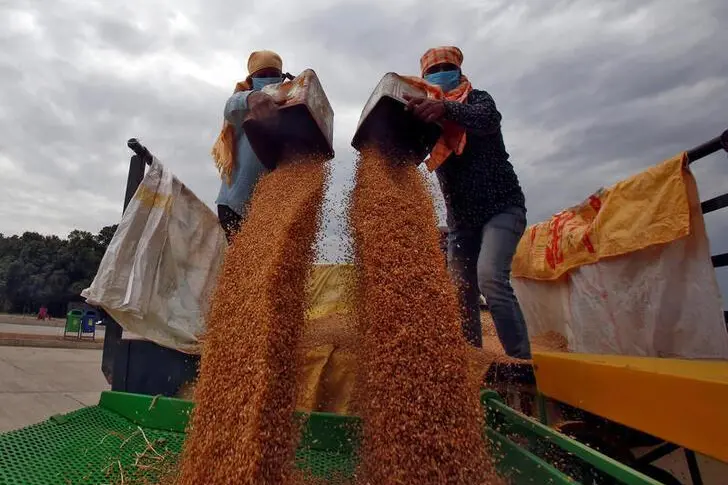PHOTO
India's wheat inventories are likely to remain above the buffer norm on April 1 despite the ongoing sale of the grain from state reserves, a senior government official said on Wednesday, which has brought down stocks to the lowest level in seven years.
The country's wheat stocks at state warehouses have dropped to 16.47 million metric tons as of Jan. 1, Ashok Kumar Meena, chairman of the Food Corporation of India told reporters.
The Jan. 1 inventories are the lowest since 2017.
"The open market sale scheme (OMSS) has helped in stabilising prices," said Meena, adding the government has sold 5.8 million tons of wheat to bulk buyers, such as flour millers and biscuit makers, since June 1.
Trades were speculating the OMSS would pull wheat stocks below 6 million tons when the new marketing year begins on April 1, against the norm of a buffer of 7.46 million tons.
However, Meena said that despite the OMSS, stocks will not fall below the buffer norm.
India, the world's second-biggest wheat producer, banned exports in 2022 after output was curtailed due to a heat wave and overseas sales picked up as Russia's invasion of Ukraine sent global prices to multi-year highs.
Still, local wheat prices are ruling far above the government-set minimum support price as industry officials say last year's wheat production was at least 10% lower than the farm ministry's estimate of record production of 112.74 million metric tons.
India, which also banned exports of white rice, has been holding sufficient rice to fulfil local requirements, Meena said.
Rice stocks on Jan. 1 stood at 18.05 million tons against the buffer norm of 7.6 million tons, although procurement of paddy from the new season crop has been lagging, he added.
The state-run agencies have procured 46.39 million tons of paddy so far this year, down from last year's 53.40 million tons, he added.
"Higher rice stocks mean this year's slightly lower rice procurement will not affect availability at all," Meena said. (Reporting by Mayank Bhardwaj; Writing by Rajendra Jadhav; Editing by Janane Venkatraman )





















